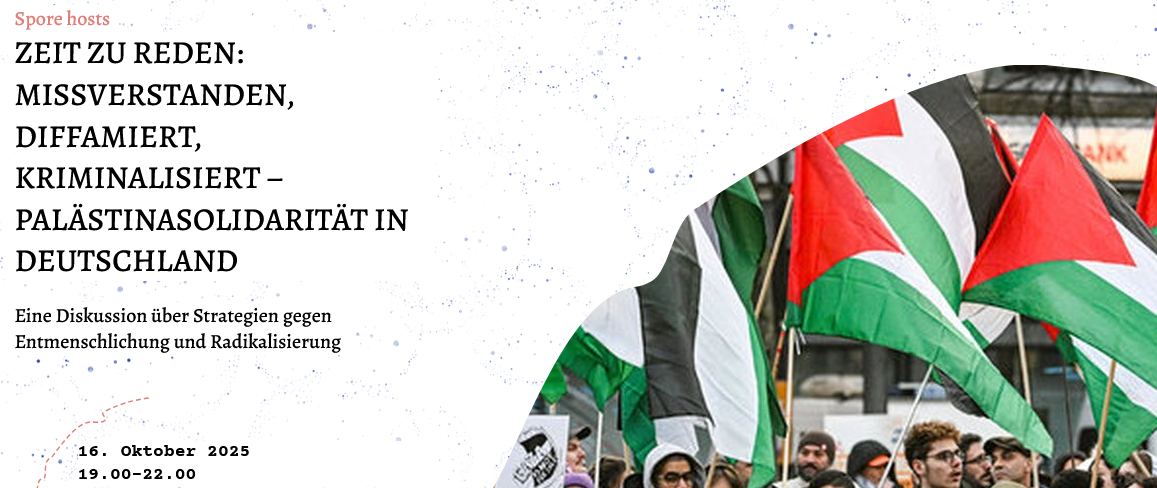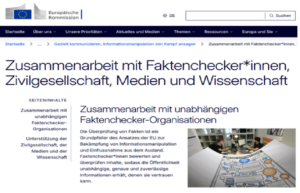Lang, lesenswert, wichtig.
– – –

2017 World Conference against A & H Bombs – Declaration of the International Meeting | World Peace Council
On July 7 of this year, 72 years after the U.S. atomic bombings of Hiroshima and Nagasaki, a treaty to prohibit nuclear weapons was finally adopted. Having worked with the Hibakusha since the First World Conference against A and H Bombs in 1955 to call for the prevention of nuclear war, the elimination of nuclear weapons and the relief and solidarity with the Hibakusha, we heartily welcome the adoption of the treaty as a historic event, and pledge to move forward with renewed determination to achieve a “Nuclear Weapon-Free, Peaceful and Just World”.
The Treaty on the Prohibition of Nuclear Weapons is a milestone leading towards their total elimination, the long cherished aspiration of the Hibakusha and the people around the world.
The treaty recognizes that nuclear weapons are inhumane weapons that would cause catastrophic consequences, running counter to the U.N. Charter, international law, including international humanitarian law and international human rights law. It thus stigmatizes them. Nuclear weapons are now not only immoral, but also explicitly illegal for the first time in history. It rightfully acknowledges the struggle of the A-bomb survivors in their call for “No More Hibakusha”, stating that it is “mindful of the unacceptable suffering of and harm caused to the victims of the use of nuclear weapons (hibakusha), as well as of those affected by the testing of nuclear weapons”, and by describing them as bearer of “the role of public conscience in the furthering of the principles of humanity”.
The treaty prohibits all activities connected with nuclear weapons, including development, production, testing, manufacturing, acquisition, possession, stockpiling and use or threat to use, without allowing loopholes. Importantly, it provides a framework for the total elimination of nuclear weapons by elaborating the ways for the nuclear powers to become parties to the treaty. It also stipulates the responsibility to provide assistance to Hibakusha and victims of nuclear tests, meeting expectations of the people of the countries having suffered from A-bombings or nuclear testing. The Treaty on the Prohibition of Nuclear Weapons is the fruit of global struggles over some 70 post-war years to achieve a “world without nuclear weapons.”
The world still sees some 15,000 nuclear weapons threatening the survival of the humanity. The development and modernization of nuclear weapons continue. The danger of the actual use of nuclear weapons remains real. There is a growing concern over tensions in various parts of the world leading to the possible use of nuclear weapons. We call on all states to face up to the inhumane nature of nuclear weapons. To achieve peace and security of the world, a ban and the elimination of nuclear weapons is essential. All states should join the treaty on the prohibition of nuclear weapons without delay. We further demand that any activity banned by the treaty be ended and renounced forever.
That the treaty bans the use or threat to use nuclear weapons signifies that it denies the “nuclear deterrence” argument used as major justification to keep possessing nuclear weapons. We urge nuclear powers to abandon their nuclear deterrence policies, and their allies to renounce their dependence on it and break away with the “nuclear umbrella”.
Further, we must move forward from adoption of the treaty to the total elimination of nuclear weapons, to achieve a “nuclear weapon-free, peaceful and just world.”
It is necessary above anything else to make the best use of the potential inherent in the treaty. All activities that run counter to the treaty are to be condemned by the international community. Given that the legal norm is now established to render nuclear weapons illegal, no state that refuses to sign the treaty can evade political and moral restrictions. It carries the possibility of restricting and paralyzing the global nuclear strategies of nuclear superpowers.
It will be even more important than before to develop cooperation between the governments that have worked for the treaty, the United Nations and civil society movements. With the nuclear prohibition treaty, there is now a new opportunity on which to build up the movements and public support for them. With the participation of representatives of both anti-nuclear movements in the world and national governments, and the U.N., the World Conference against A and H Bombs has promoted dialogues and cooperation among them. Growing public awareness encouraged by such activities will exert pressure on the nuclear powers and their allies into abandoning the policy of clinging to their nuclear arsenals.
To move forward towards completely eliminating nuclear weapons, it is of decisive importance to build a majority of opinion in support of the treaty in the nuclear-armed countries and their allies and press their governments to sign and ratify the treaty with the force of public opinion and movements. The U.S., the U.K. and France rejected the treaty, saying that they would not “ever become party“ to it. Some other nuclear powers expressed that they were in favor of a “step-by-step” approach and that they would not participate in the treaty. In these countries, we need to build public opinion to question the position of the governments towards the treaty and press for their participation in it. Big steps forward towards a world without nuclear weapons will be made possible by bringing together these voices and actions.
The nuclear and missile development of North Korea in violation of international agreements constitutes a serious threat to peace in the region and the world, and must not be tolerated. All military threats and provocations should stop immediately. All parties concerned should take steps for a diplomatic and peaceful solution without delay. Based on the spirit of the treaty on the prohibition of nuclear weapons, we urge North Korea to stop nuclear activities and abandon all its programs. Practices and consolidation of the existing nuclear weapons-free zones, as well as regional efforts to create new such zones are also important.
Disappointment and resentment are spreading among the Hibakusha and other sectors of people at the refusal of the Government of the A-bombed country to participate in the Nuclear Prohibition Treaty. We urge the Japanese Government to leave the U.S. “nuclear umbrella” and sign the Prohibition Treaty without delay. Large numbers of people are standing up against the destruction of peace principles of the Constitution and the preparations to join in wars overseas. In Okinawa, a struggle involving all Okinawa residents is growing against the construction of a new U.S. base. We express solidarity with the movement in Japan for the defense of the Constitution and for a non-nuclear and peaceful Japan.
At the root of the nuclear prohibition treaty has been the role played by the anti-nuclear peace movements working with Hibakusha at grassroots in the world. The opinion and movement of the people around the world will determine the outcome and future course of events. We call for following actions:
– To build up people’s opinion to demand from all governments participation in the Nuclear Prohibition Treaty and further engagement in achieving the complete elimination of nuclear weapons. From September 20 to 26, we propose to launch international simultaneous actions “Peace Wave” linking diverse grass-roots activities to call for participation in the Treaty.
– To initiate extensive dialogues to inform the general public about the inhumanity of nuclear weapons and the imperative of the total elimination of nuclear weapons; to promote events and activities to listen to the testimonies of Hibakusha, exhibiting Hiroshima and Nagasaki photo panels, inheriting the memories of Hibakusha, and learning about the nuclear prohibition treaty itself; to enhance peace education as encouraged by the treaty.
– To accelerate and broaden the international signature campaign in support of the Hibakusha Appeal to prohibit and eliminate nuclear weapons with the goal of hundreds of millions of signatures worldwide by 2020.
– To expand cooperation between national governments, the U.N. and civil society movements on such occasions as the September 20th opening for signing the Treaty, International Day for the Total Elimination of Nuclear Weapons on September 26, the regular session of the First Committee of the UNGA, the UN High Level Meeting on Nuclear Disarmament in 2018, and the next Preparatory Committee meeting of the NPT Review Conference.
– To extend relief and solidarity to Hibakusha and help to achieve state compensation for them; support the efforts of second and third generation Hibakusha; call for support of the nuclear test victims; strengthen solidarity with the movements demanding the relief of the sufferers of the nuclear power plant accident and demanding ZERO nuclear power; support the victims of Agent Orange, depleted uranium and other war damage.
– To extend solidarity to the struggles and movements against war and for peace, for the reduction and removal of foreign bases in Okinawa and others, opposition to military-industrial complex; a reduction in military spending and improvement in living standard, employment and social welfare, overcoming of poverty and social gap, prevention of climate change and protection of global environment, overcoming of the discrimination based on sex and other factors and struggle for the development of Culture of Peace.
The nuclear prohibition treaty emphasizes the role of Hibakusha and the movements of civil society in their advocacy of the total elimination of nuclear weapons. Let us open up our future together with the Hibakusha. Now that the door to a “nuclear weapon-free world” is open, let us walk forward with young people in high spirit to achieve it.
August 5, 2017
International Meeting
The 2017 World Conference against A and H Bombs
Source: www.wpc-in.org/statements/2017-world-conference-against-h-bombs-declaration-international-meeting
 Medien | Meinungen Der Blog des Instituts für Medienverantwortung
Medien | Meinungen Der Blog des Instituts für Medienverantwortung


